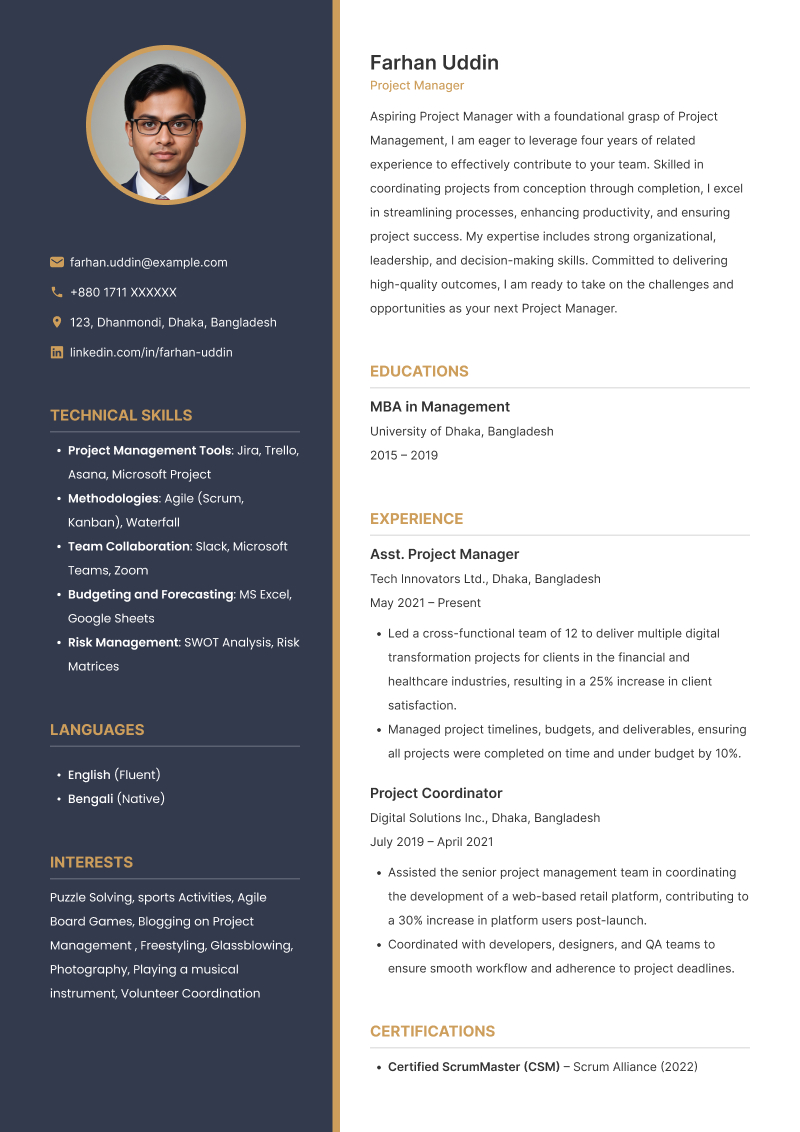The next few years will be a time of great upheaval across all industries due to extensive and rapid changes in the technological landscape. Geopolitics, regulations, and other significant catalysts are bringing unprecedented changes everywhere, so long-sustained work cultures will likely see massive shifts.
The future of work trends will be defined by how well people respond to technological advancement. Due to the changing work structure in many fields, many jobs will be replaced or upskilled.
Many people are anxious about what the future holds. The safe, tried-and-tested methods and work ethics are steadily becoming obsolete in this dynamic landscape. So, many people want to know about the upcoming trends so they can stay ahead of the game. Today, we'll try to give you more insight about future trends of work across various industries.
Top 10 Most Significant Trends In Major Industries
Many different factors affect the existence and implementation of workplace trends. Technological advancement, people's sentiments, corporate and government regulations, and economic conditions are all very impactful elements. In light of recent developments in sectors, these are the most probable workplace trends for the next few years:
1. AI Disruption
AI has proliferated extensively for the past few years and is continuing to do so even today. It has infiltrated almost every competitive industry to various degrees. The amount of disruption it brings is unprecedented for any singular technology.
It is no longer just a simple elephant in the room if we are talking about workplace trends. This particular specimen is a belly-dancing albino mammoth that somehow also plays the banjo with a reasonable proficiency. Suffice to say, AI disruption will continue at an increasingly steady pace, shattering any previous metrics.
In the wake of the spread of AI, many industries will likely see major changes. Several job categories may become obsolete. AI will also create more competition in existing markets, making the landscape much more dynamic across many industries.
2. AI Integration
While it is true that AI will replace many jobs and make others obsolete, there are upsides to this as well. Many industries will use AI to increase their overall efficiency by seamlessly integrating the technology with their existing operation structure.
AI integration will create many new job sectors that will balance out the ones that are lost. Think tanks of many industries are working to make an upskilling effort to train the existing workforce to coexist with AI rather than be replaced by it.
Therefore, expect to see many workplaces AI usage training and other workshops in the next few years. The ultimate goal in every industry is efficiency, and sometimes it’s just more efficient to coexist.
3. Automation and Robotics
Automation is also a very significant part of the future of work trends. Many jobs will be fully automated due to the advancement in the robotics industry. Many people like to lump this together with general AI technology, but strictly speaking, robotics is a separate discipline.
That being said, AI is still intricately tied to this industry as it acts as the brains of the robotics' brawns. Robots technically won't replace humans any time soon, despite what anyone says, but there's a very high possibility that some industries might implement robot-operated workflow to increase efficiency.
It ultimately boils down to cost-effectiveness for most industries. If it's cheaper to replace human labor with machines, they will do it. But as of yet, it is not. The current technology is simply too expensive for some industries, but that can likely change in the next few years. So, stay updated on the developments.
4. Gig Economy And Freelancing
Despite the global upheaval in all industries, the gig economy has only become bigger and more robust than in the past. There are more freelancing jobs in several fields due to global demand. Skilled workers are finding much success in freelancing jobs as opposed to a standard nine to five.
One of the reasons this industry is enduring these turbulent times has to do with the fact that freelancers are extremely flexible in terms of adapting to new technology. Many freelancers have adapted to the recent technological disruption with surprising ease and made new and unique places for themselves in the freelancing landscape.
Though it is worth noting that the flourishing of the gig economy hides a dark truth: that the traditional work and employment structure is slowly becoming unfit. Many people enter the freelancing landscape as a necessity, as it serves them better than traditional job infrastructure.
5. Green Jobs
Green jobs are a relatively new term used in various industries to signify sustainability.
Most industry's relationship with sustainability only ever goes as far as "sustaining" their profit margins, even they can't ignore the fact that we're seeing one-in-a-lifetime natural disasters every other year. That’s bad for business.
As such, most industries have adopted environmentally sustainable structures for their operations. With ESG reports becoming mandatory for most medium and large industries. The cost of not caring about the climate condition is suddenly much higher than adopting sustainable business practices.
In light of possible regulation changes in order to combat the climate crisis, many industries will need to supplement their existing workforce with environmental analysts, and other related professionals to ensure compliance with the global demands.
6. The State of DEI
DEI initiatives are suddenly in a somewhat ambiguous place right now. If you've paid attention in the past few years, DEI initiatives have become the norm across many industries. Letting disadvantaged demographics get a fair chance had been all the rage, and many jobs and positions were opened up precisely to aid that cause.
However, the recent geopolitical landscape shows a marked decline for progressive upward mobility. Many regions of the world are seeing extremely conservative regimes taking power. DEI initiatives are among the first in their agenda of things that have to go.
While it is true that DEI in various industries won’t outright go away, there’s a fair chance it’ll see a marked decline in at least a few specific nations. The situation is still fairly confusing, so anything at this point is pure speculation and must be taken with several grains of salt of your taste.
7. Remote and Hybrid Work Models
The whole “remote work” idea took off after the great plague of our era, and the idea stuck. Employees, employers, and the concept of remote work have a complicated relationship. Some people like remote work because it saves them commuting time and increases their efficiency, while some employers want people to return to the office so they can monitor them better.
Some industries will try to eliminate remote work as an option, while some will embrace it. And that's the trend that'll continue in the next few years. In fact, there might even be a surge in the number of remote work jobs.
Robotics, AI, and VR technology are coming together to create an entirely new sector of remote work opportunities. While this most likely will not become mainstream next year, it is something you should be keeping an eye on.
8. Skill Over Degrees
The trend of prioritizing skills over degrees will continue as it has for the past few years. College degrees have been successfully devalued to the point it's basically a second-rate job requirement now. Industry leaders prefer skill sets over degrees across multiple industries.
Looking at the recent hires of tech giants will give you a clear understanding of the shifting landscape. Many companies like Google, Facebook, and Amazon have steadily removed degree requirements from their job postings. Tesla's CEO openly stated he would hire people without college degrees as long as they have the skillset.
Naturally, this means people need to increase their skill sets and focus more on gaining new ones while planning their career path. This is not simply part of “industry trend 2025”. This is a trend that will stay as long as there are no major shifts in the current education landscape.
9. Conflict Between The Old and The New
Study shows that the age gap between new hires and working employees is rising substantially. This is a trend that has been going on for a while now and will likely continue in the future. People are retiring less frequently, opting to work well past the usual retirement age.
This has created a saturated job market where old people hold more jobs than ever before. While this is great for old people, the fact remains that new individuals are finding it hard to land jobs due to over-saturation.
Older adults get better insurance coverage and higher pay per hour than young adults. This also contributes to their higher job satisfaction, while the latter is markedly lower.
10. Workplace Restructuring
Most industries will see a marked rise in workplace restructuring programs in the next few years. The advent of new technology and other shifting currents in several industries have made traditional office structures obsolete.
Many industries will adopt efficiency-oriented workspace designs like that of Amazon and Google. Global trends are shifting in favor of this initiative as well. The restructuring will serve several purposes. Productivity is of course the primary incentive, but there's also a significant focus on creating spaces that are better for the mental well-being of the employees
Workplace cultures are also changing to adopt more wellness-oriented workspaces, as many employees show a marked drop in productivity in stressful environments.
Strategies for Adapting to The Changing Currents
Adaptation is the strategy for surviving in any changing environment. The best way to tackle the upheaval in the workplace trend shift is to have a flexible mindset. As a working adult, your mindset should always stay focused on growth.
Prioritize your resume and personal growth and create a personal brand that holds weight in the industry. Embrace lifelong learning and stay updated on the latest trends. Do not let your skill set grow rigid and inflexible.
Acquiring industry-specific skills will allow you to climb up the ladder quickly. However, try to prioritize skills that are interdisciplinary and have value in multiple industries. Familiarize yourself with the latest technology and focus on internet literacy.
Some of the workplace changes by industry may be temporary, but most will continue for several more years. The rise and fall of the economy and geopolitical power shifts will significantly affect the trends.
Conclusion
Workplace trends and the job market are almost always in constant flux. However, recent technological advancements have ushered in an unprecedented rate of change in almost every industry. The climate crisis and the multicultural reality have made industries scramble to adopt new and sustainable operating principles.
The situation is further corroborated by the tension in the geopolitical landscape, creating an extremely chaotic and dynamic work environment in every industry. The only way to survive in this environment is to adapt and plan strategically. We can help you do that by providing you with the best resumes that can pass both human and machine scrutiny.

Create Your Job Winning Resume
Create a professional resume effortlessly with our easy-to-use builder.
